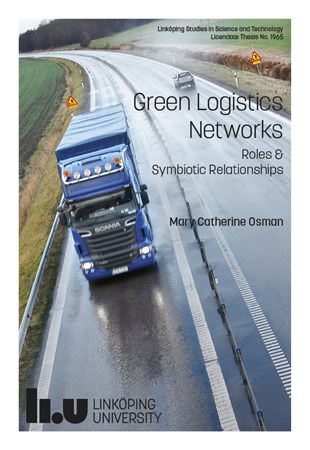Through deeper understanding of relationships between logistics actors can we ease the transition to fossil-free alternatives. Identification of the freight forwarder's influence in the logistics network is a large focus in my research.
The goal is to produce research that can be used despite fossil-free fuel. However, my research focuses on biomethane. Biomethane is produced through anerobic digestion of organic waste extending the use of that we throw away. Linköping has been at the forefront of biomethane use and I hope to lift biomethane as a viable option for the rest of Sweden and Europe.
I am an industrial PhD student splitting my time between LiU & VTI. In addition to research, I aid in teaching logistics course at LiU and collaboration in different reports at VTI. This doctoral project is financed by Triple F.
Further research interests include cicular economy and e-commerce.


